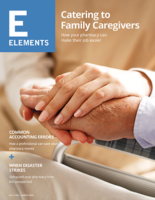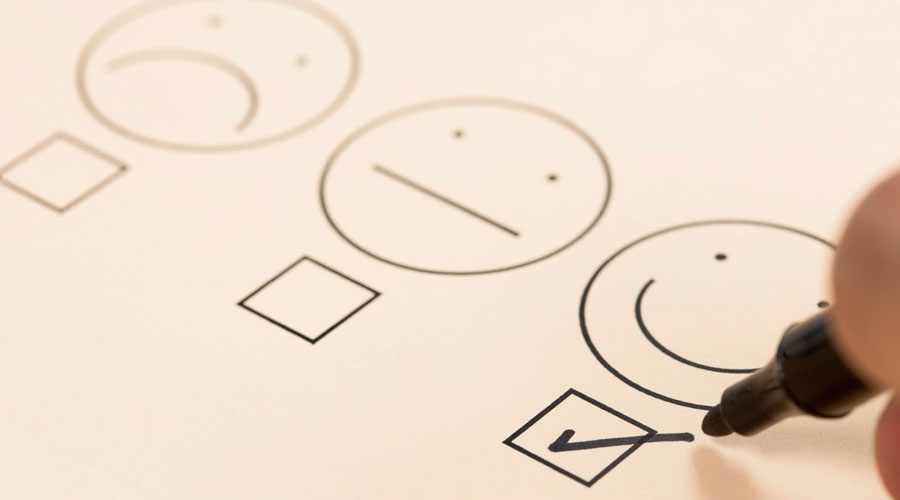When you keep track of transactions in your independent pharmacy, you have a choice between two accounting methods: the accrual method and the cash-basis method.
“Timing is one of the big differences when it comes down to these two methods,” said Scotty W. Sykes, CPA at Sykes & Company, P.A., which specializes in accounting services for independent pharmacies.
More specifically, the difference between accounting methods is when your income and expenses are recognized. The accrual accounting recognizes income and expenses as soon as soon as a transaction occurs. The cash-basis method recognizes income only once you’ve collected the cash. Sykes gave this example: Say you dispense a prescription, and the PBM pays you 30 days after the sale. Under the accrual method, you would record the income when you dispense the medication and register the sale. Under the cash method, you would record the income 30 days later, when you receive the payment from the PBM.
On the expense side, if an electrician hands you a bill, you would record that expense right away under the accrual method, whether you paid for it then or not. Under the cash method, you wouldn’t record the expense until the bill had been paid.
While this may seem like a minor math difference, the accounting method you choose can have a big impact your pharmacy’s cash flow, taxes, and bookkeeping.
Cash Flow
When you use the accrual method and record income as soon as the transaction occurs, it appears as earned revenue, even if you don’t actually have that money in your pocket. The same goes for your expenses. “When tied all together, it gives an accurate representation of how you performed in any given period,” Sykes said. “You’re seeing exactly what transpired, even if you haven’t gotten paid or paid the bill yet.”
However, it doesn’t necessarily reflect what’s happening in your bank account. You could look at a month where you had a net income of $50,000, but the money in your bank account only went up by $10,000. “You may be asking yourself, where is the rest of this cash? That’s where you have to understand that a lot of money is sitting in your accounts receivable as money owed to you, or it’s sitting on your shelf as inventory,” Sykes said.
Using the cash-basis method, your accounting will be a more or less accurate reflection of your bank account. It’s simple to adopt, which can be appealing for small businesses. “It’s essentially a checkbook,” Sykes said. You don’t necessarily get a full representation of what’s happening month-to-month, because you may get a payment from revenue you earned the month before, but you will have a better sense of how cash is flowing in and out of your pharmacy.
Tax Implications
Before the Tax Cuts and Jobs Act (TCJA) passed in 2017, most pharmacies were required to use the accrual method of accounting for tax purposes. However, the law opened the door for pharmacies to adopt the cash method—which Sykes said is an advantageous switch for most independent pharmacies.
If you switch from the accrual method of accounting to the cash-basis method, you’ll take your receivables off the books as a write-off. Sykes said, “That’s a large number that you’re writing off as an expense. It reduces your taxable income in most instances, which has a lot of value for tax mitigation purposes.”
The changes made by the TCJA did introduce some ambiguity about how inventory should be handled under cash-basis accounting. “A lot of the industry decided to interpret the language as saying that inventory could be expensed for tax purposes, which created an even larger spending write-off against your income for that period,” Sykes said. However, a decision by the IRS and the Treasury Department was handed down in 2021 determined that businesses had to keep their inventory on the books for tax purposes.
Pharmacies that wrote off inventory in prior years will have to change their practices for the 2022 tax year. “Speak with your advisor,” Sykes said. “It’s a big change. Your inventory is going to count as income, so pharmacies need to do a lot of planning around this issue.”
Overall, Sykes said, “Rule of thumb, cash-basis is a better decision for most pharmacies. However, there are some limitations. If you’re running losses already, it may not make sense.” It should also be noted that businesses with gross receipts of over $25 million are still required to use the accrual method of accounting, so if you own multiple pharmacies, cash-basis accounting may not be an option for you.
The other limitation is that the TCJA expires in 2025. Unless it’s renewed, most pharmacies will have to return to the accrual method of accounting.
Bookkeeping
From a bookkeeping perspective, Sykes recommends using the principles of the accrual method. “Accrual-based books are going to give the clearest picture of how a pharmacy is actually performing from month to month,” he said. Then, at the end of the year, there’s a process that converts the books so the accountant can perform the year’s taxes on a cash basis. “The best advice in my opinion is to keep accrual-based books and keep the reconciliation of the cash method with your tax advisors.”
If you choose not to use accrual-based bookkeeping for your pharmacy, it’s crucial to not lose track of your receivables. With a few exceptions, pharmacies that use the cash-basis method won’t have accounts receivable or accounts payable on their books. Sykes said, “There are some folks we hear of that do cash-basis accounting, and they say it’s easy. They don’t look at the receivables and they just assume that they get paid. We think that’s a pretty dangerous approach.”
Business owners need to know exactly who they owe and who owes them. If not, it’s possible you won’t get paid money that is owed to you, but never realize it. “Develop a system to keep track of what’s outstanding and what is owed in 30, 60, or 90 days,” Sykes recommended. “There’s technology available to help you do that, and it’s an important tool for pharmacies to really understand their business.”
Which Method Should You Use?
Best Method for Taxes: Cash
Best Method for Bookkeeping: Accrual
Best Method for Tracking Cash Flow: Cash
From the Magazine
This article was published in our quarterly print magazine, which covers relevant topics in greater depth featuring leading experts in the industry. Subscribe to receive the quarterly print issue in your mailbox. All registered independent pharmacies in the U.S. are eligible to receive a free subscription.
More articles from the June 2022 issue:
- Cultivating Your Leadership Style
- Semglee Is Now Available at Retail Pharmacies
- Tackling Burnout in the Pharmacy
- Refresh Your Pharmacy With a Remodel
- Modern Marketing with QR Codes
- Profitable Expansion with Remote Delivery Kiosks
- Choosing the Right Accounting Method
- Measuring and Maximizing Wholesaler Rebates
A Member-Owned Company Serving Independent Pharmacies
PBA Health is dedicated to helping independent pharmacies reach their full potential on the buy-side of their business. Founded and run by pharmacists, PBA Health serves independent pharmacies with group purchasing services, wholesaler contract negotiations, proprietary purchasing tools, and more.
An HDA member, PBA Health operates its own NABP-accredited warehouse with more than 6,000 SKUs, including brands, generics, narcotics CII-CV, cold-storage products, and over-the-counter (OTC) products — offering the lowest prices in the secondary market.












